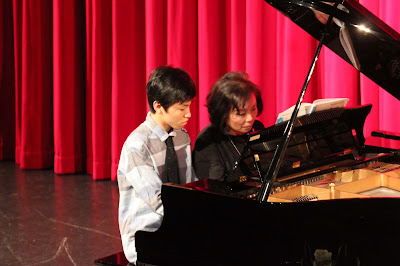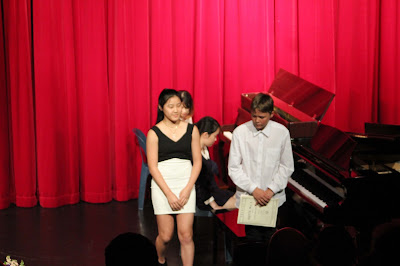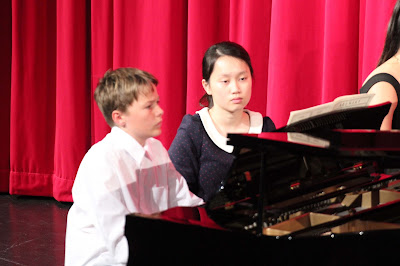"In a world on the brink the difference between war and peace was one honest man." This tagline is what
Bridge of Spies stands for. This historical dramatic thriller film directed by Steven Spielberg from a screenplay written by Matt Charman and the Coen Brothers. Based on the 1960 U-2 incident during the Cold War. The film tells the story of lawyer James B. Donovan, an American lawyer who is recruited and entrusted by the CIA with negotiating the release of Francis Gary Powers - a U-2 pilot detained in the Soviet Union - in exchange for Rudolf Abel, a captive Soviet KGB spy held under the custody of the United States.
Like most of Spielberg's war-themed projects, Bridge of Spies is no exception when the director has a personal history and connection with the project. Just as Schindler's List (1993) resonated with Spielberg's Jewish upbringing; Saving Private Ryan (1998) connected with him because of his father's wartime service, and Munich (2005) showing Spielberg's own relationship with the Israeli/Palestinian conflict. The events in the film has another seemingly amazing connection with the director. Spielberg's father actually went on a foreign exchange to Russia as an engineer during the cold war, right after Francis Gary Powers was shot down, when there was tremendous fear and hostility between the two nations. Spielberg's father recalled seeing Russian citizens line up to look at Powers' crashed gear and "see what America did". When they saw the American engineers, they pointed at them and said, "Look what your country is doing to us", demonstrating the fear and rage the nations felt towards each other. After Spielberg's father agreed to read the script, he showed Spielberg photo slides of Powers' crashed gear.
The film was first commissioned by screenwriter Matt Charman. He then pitched it to DreamWorks co-founder Steven Spielberg, who became interested in the film and decided to direct. Joel Coen and Ethan Coen were then brought in to revise Charman's original script. In June 2014, Fox 2000 Pictures agreed to co-finance the film with DreamWorks and Participant, with the film's distribution rights being divided up between Disney and Fox. In May 2014, it was announced that Tom Hanks would star as James Donovan, and Mark Rylance would star opposite Hanks as Rudolf Abel. Amy Ryan, Alan Alda, Billy Magnussen, and Eve Hewson were reported to star in the film as well. This is Hanks' fourth film collaboration with Spielberg in over ten years. They previously worked together on Saving Private Ryan (1998), Catch Me If You Can (2002) & The Terminal (2004). It is their first collaboration in over ten years. Principal photography began in September, 2014 and shot for 12 weeks on locations in Brooklyn, New York; Berlin and Potsdam, Germany and Wrocław, Poland, including many of the very places where the events in the story actually took place. The film was shot under the working-title of St. James Place. The European production kicked off in Berlin, where the actual prisoner exchange of Abel and Powers took place, and would last there through the end of November. To film the crucial Berlin Wall sequences, production also traveled to Wrolcaw, which more accurately resembles the East Berlin of 1961 than Berlin itself. During December, filming took place at Beale Air Force Base, Marysville, California before Principal photography officially ended. During production, Francis Gary Powers, Jr., founder of The Cold War Museum and the pilot's son, was brought on as a technical consultant and has a cameo in the film. This film is particularly notable for being the first Spielberg film not to be scored by John Williams since The Color Purple (1985). In March 2015, after Williams' schedule was interrupted by a minor health issue which reportedly has since been corrected, Thomas Newman stepped in to replace him as composer.
The film stars Tom Hanks, Mark Rylance, Amy Ryan, and Alan Alda. The cast gave superb performances, especially Hanks as Donovan. Hanks characteristically delivers in this witty, dignified portrait that immerses the audience in its world and entertains even as it informs. The hallmark of this performance, performed so powerfully by Hanks, was playing a calm self-confident and patient man who had a willingness to play politics and justice in a realistic and human way. As he is the one who is defending the ideals and principles of his nation and showing us never to sacrifice those qualities no matter what, in this case being whether someone is guilty or how much a situation escalates to. Even going so far as to using the same words that his real-life counterpart used when he made arguments to the Supreme Court when taking about and defending Abel. In addition, Rylance was equally magnetic as Hanks in delivering a portrait of a calm and quiet man whose mutual respect for Hanks' Donovan made great chemistry on screen. Their scenes together alone were all cinematic unto themselves, and could have easily taken up the entire film. And their final bow was the most magnetic and warmest of all.
Bridge of Spies is one of the most remarkable movies Spielberg has made in the subsequent years, and one of the things that makes it remarkable is how it fulfills those expectations by simultaneously ignoring and transcending them. The fourth collaboration of Spielberg and Hanks has brought forth another triumphant piece of historical and cinematic journalism, a profound work of popular art and a rich examination of one of humanity's lesser-known triumphs. Like Schindler's List, Saving Private Ryan, War Horse (2011) and Lincoln (2012), it is one of the finest historical dramas Spielberg has ever committed to film. In conclusion, it is finally a movie about how difficult and costly it has been for the United States to recognize its ill-fated relationship with Russia. However, there's so much material, not much revelation to the film. Nonetheless, the film does contain Spielberg's reliable cinematic flair to elevate this film to its peak. In the end, this film is a noble humanistic masterpiece.
Simon says
Bridge of Spies receives:











































































